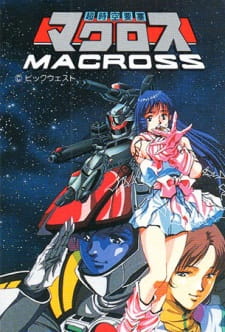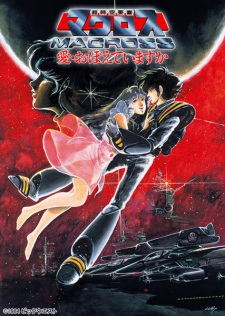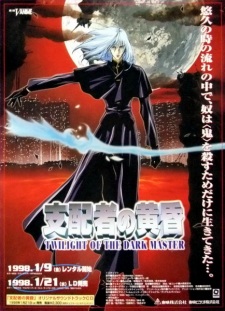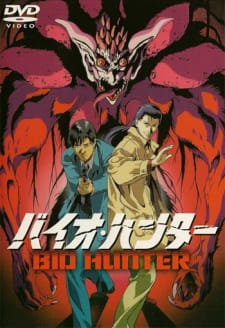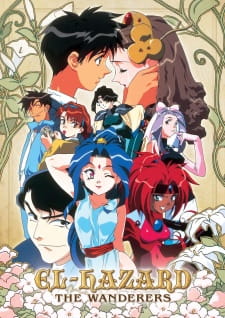Jun 24, 2012
First experiences with things are potentially revealing things. There's plenty of kid's shows I saw when I was young that technically were anime, English dubbing notwithstanding, but there's a difference between that and sitting down to something knowing it's a Japanese cartoon and it's not intended for kids. My first one of those, and thus the first thing I saw that was anime which I actually knew was anime was Orguss 2; I was fifteen and it was a hot afternoon in my friend's mess-strewn loft. I had no idea I'd still be thinking about what happened there sixteen years later.
...
My continued fascination with Japanese animation was born right there, a product of the battering my preconceptions and expectations underwent, because Orguss 2 is lots of things, but it isn't a kid's thing at all.
Orguss 2 is (at least superficially) Mecha. The central conceit of a pre-modern world excavating readymade mecha to use them as weapons without really understanding them seemed really fresh to me back then, and in fact, while it's perhaps not as original as it once was, it's still a pretty unusual and striking idea. I say superficially because, well, it also seemed a pretty mature way of storytelling, to rustle up this grand concept but use it pretty sparingly for much of the time, not really focusing on the mecha at all, but on people. I suppose both of those things aren't really that amazing, but they definitely work pretty well. I have to see this in terms of my first impressions, though, and back then I was really surprised that a cartoon would do any of this stuff.
Orguss 2 is sci-fi, and like the best sci-fi, it's as much about ideas and allegory and making you think as it is about entertaining you with cool stuff. So the fact it's got this interesting carte blanche for ideas with all the time-bending, mecha-excavating, future-crashing setup that's gone on makes it a bit aggravating when you realise there's not enough time to really play with the ideas properly in only six episodes. It does develop, but not a great deal. Then again, maybe it's best that it doesn't overstay its welcome by pushing the idea too far; shows like Allison and Lillia are proof of how that can go wrong.
Orguss 2 is also big. The sense of scale here is very important to the plot, and the fact that it's done almost deceptively well is very impressive. Of course, it wasn't to my teenage self; I just didn't get anime at first, and I remember thinking 'wow, if this was live action it would be amazing!'. What a noob I was. Big mecha, big world, big events, big setpieces. It would be unbelievably expensive to do in live action, and it wouldn't work as well anyway, at least not with the current state of the art in terms of technology or creative artistry.
Orguss 2 is nicely visualised. The animation is good - as you might expect from relatively early-period JC Staff - clearly better than contemporary TV standards, and the design work in particular is very well executed, giving distinct looks to each distinct aspect/era/system of technology; it's always clear where things are, who people are, what things belong to which place or time. The look is particularly notable as, just for once, nothing is a clear pastiche of any single world culture. Elements from everywhere are pulled together for the rival cultures, but visual themes like architecture and machinery are consistent, creating a pretty convincing and original atmosphere. Character design is pretty good too; the Revilian royals in particular are appropriately opulent, decadent and memorable, with the real stand-out being the queen, whose revealing robes of state immediately prompted me to think of her as Princess Breasts.
Orguss 2 is relatively blessed by good characterisation, though. The main male protagonists are relatively unremarkable to look at, but well-rounded and developed in terms of personality. Lean is something of an archetype, a young hero making good after he is thrust into someone else's fight, but is pleasingly bright and resourceful. Manning is a great character, a charismatic, womanising, profiteering and rather ruthless officer who manages to constantly be genuinely unpredictable without seeming nonsensical or even particularly contradictory. I changed how I felt about him rather a lot across the series, which to me is the mark of genuine and well-realised character development. Nataruma, the female protagonist, is also a finely crafted character, a strong female character who is genuinely strong and independent, as opposed to the more common type who is ostensibly independent but frequently needs a man to rescue her. Nataruma and Lean, who spend a lot of the series together, complement each other well. Behind these three, a number of less prominent characters are also well crafted. Voice acting is good across the board, with special mention going to Sakakibara Yoshiko as the aforementioned Princess Breasts (actually called Miran, but never mind), who gives the role a superbly dangerous stillness.
Orguss 2 is surprisingly nasty. Not in a gory way, although some of it is rather gruesome, but in terms of the rules of the world. Oddly, having rewatched it recently I was struck by how similar it is, in a limited sense, to Game of Thrones. Sure, it's not got such a huge ensemble of characters, and in place of the unremitting medievalness there are mecha with axes and lasers, but the brutality of the characters and their general level of malice and malevolence, plus the internecine plotting, the epicly dysfunctional and depraved families, the sharply observed gaps between noble opulence, military severity and common desperation - it's all in there. Only two opposing sides here, but plenty of factions within them, easily enough to keep things relatively surprising. Perhaps a big difference is that while Game of Thrones tends to make human suffering rather incidental, not a lot more than a yardstick of what its characters want and how far they go to get it, it's really foregrounded here. The suffering of people in general because of war, and due in particular to the unworldly attitudes of those in authority, is kind of the main point. Come for the mecha fights and sexy blue-haired cover girl, stay for the realistically portrayed firestorms, intra-community betrayal, battlefield triage, nukes and chemical weapons.
Orguss 2 is something else, which rather gets overlooked: it's 2. The fact it's a sequel to something that so far as I know has never been available outside Japan in its intact form should, you would think, mean it's largely incomprehensible, but it's not. It is actually a side-story, occurring 200 years after the original series, rather than a direct sequel, and I suspect it's rather different in tone and focus; the fact that the title refers to a Mech which takes three episodes to appear and is only really important once rather supports this. No, as a stand alone work it makes perfect sense, everything is pretty much self-contained, and while I've no idea if any of the characters or indeed any other aspects of the series are carried over from the original, it transpires that the characters and the story all work fine without the influence of the original.
It's worth mentioning in passing that the music is largely dreadful, but probably Orguss 2's greatest problem is the structure. It establishes a consistent style and direction but starts to fall apart a little at the end (like this review, in fact); I suspect the makers intended to make another episode or two but had to end early, resulting in plot compression in the final stages - not an uncommon problem with multi-part OVAs. Too many things happen in too short a time, certain twists are made predictable and the somewhat thoughtful tone and pace of the earlier episodes evaporates in over-frenetic boss fights. Still, what exists is decent, and even with the guessable twists, it's certainly not without significant surprises. Perhaps most importantly, the series was in fact finished and the story resolved, avoiding the worst fate of any narrative, failing to end.
There's no way I can pretend to be even remotely objective about this OVA. One of the things I love most about it is how surprising that first watch was, on a number of levels. If I were to see it now, with all the knowledge of anime tropes I now possess, I very much doubt that much of it would still have that power. I know it's not as special as it seems to me, but as my first knowing encounter with anime it's specifically special to me, and despite its flaws I will defend it as a thoroughly enjoyable piece of work.
Reviewer’s Rating: 8
What did you think of this review?
Nice
 0
0
Love it
 0
0
Funny
 0
0
Confusing
 0
0
Well-written
 0
0
Creative
 0
0Show all




 (1).png)


